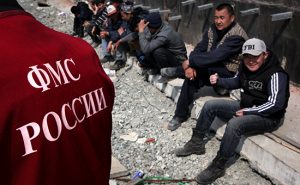
On Tuesday, the State Duma will consider in the second reading the draft law of the chairman of the Committee for Security and Anti-Corruption Irina Yarovaya, which replaces the quota mechanism for attracting foreign citizens to work for a permitting procedure for employment under patents. As the author of the draft, adopted in early July in the first reading, noted, it introduces the personal responsibility of governors for migration policy in their region.
Earlier, the Constitutional Committee of the State Duma, after lengthy consultations with relevant departments, the government of Moscow and Yarovaya, approved amendments to the bill. One of the novelties was the abolition of the norm that allows migrants to work with the territorial bodies of the FMS through a representative. According to Yarovaya, this rule, which allows obtaining patents through intermediaries, generates a “corruption scheme”. Those wishing to work in Russia will have to represent their interests either personally or through a specialized organization authorized by a constituent entity of the Federation.
The FMS did not agree with the abolition of intermediaries, insisting that a longer transition period should be established. “I am worried about how our territorial bodies will cope and how the residents of the districts where there will be queues of migrants for registration will feel,” said Ekaterina Yegorova, First Deputy Director of the Federal Migration Service, at a committee meeting on November 6.
Nevertheless, the deputies not only insisted on abolishing the provision on intermediaries, but also decided to shorten the proposed transition period by a year. When considering the bill in the second reading, the chairman of the constitutional committee, Vladimir Pligin, intends to propose for consideration by vote a new amendment that changes the deadline for the completion of the transition period from January 1, 2017 to January 1, 2016. This amendment was signed by the author of the bill Yarovaya, he told RBC.
Vyacheslav Postavnin, former deputy head of the Federal Migration Service, president of the Migration XXI Century Foundation, believes that legislators who decide to replenish the budget by issuing patents should go further and leave this function entirely at the mercy of the regional authorities. “It is necessary to leave the FMS with only control and supervisory functions in this matter, and let the provision of services be the business of the region,” says Postavnin. “The idea is good, if only to really completely abandon the queues at the FMS offices, which create corruption and social tension, in favor of specialized centers.”
